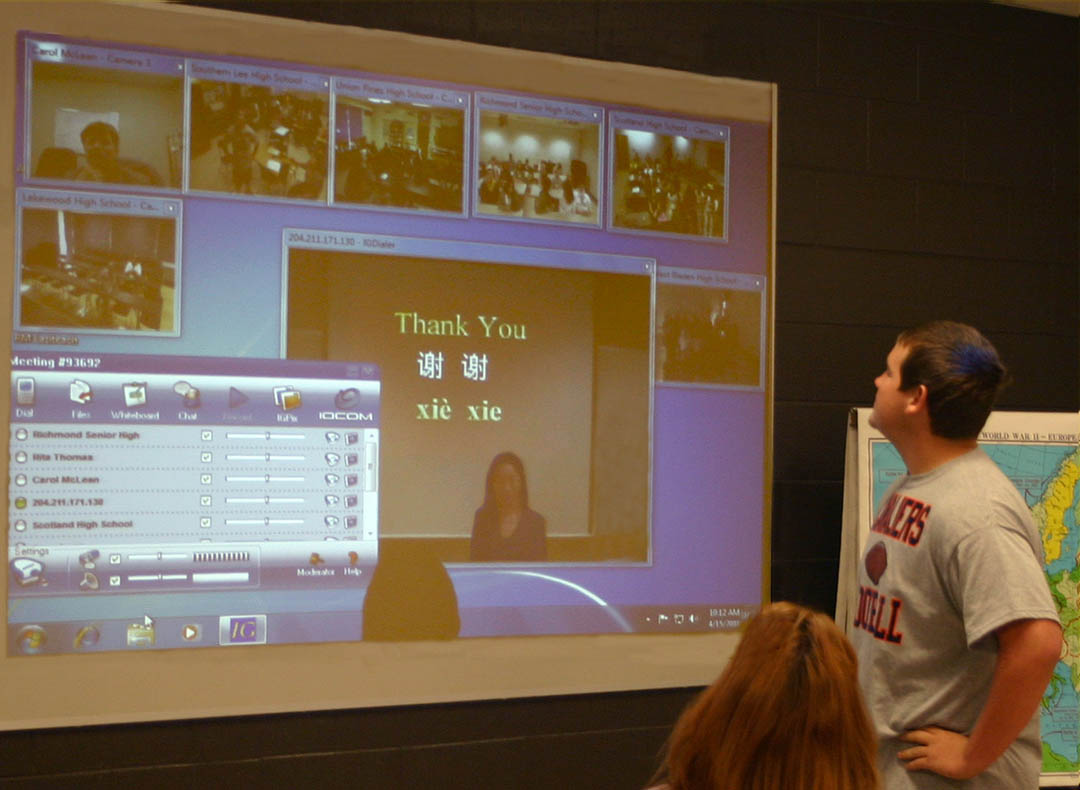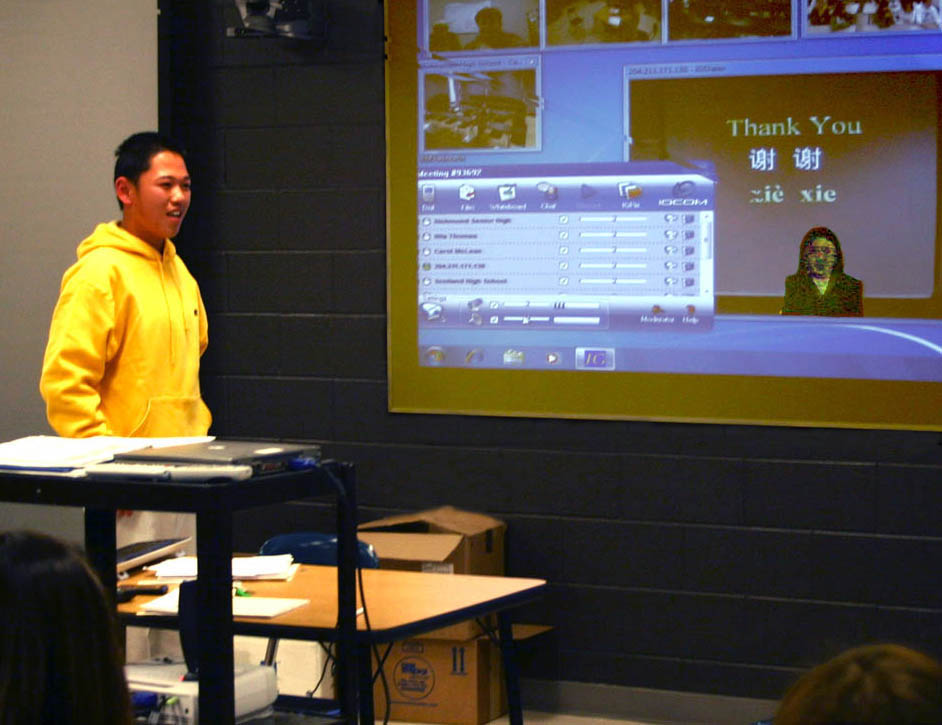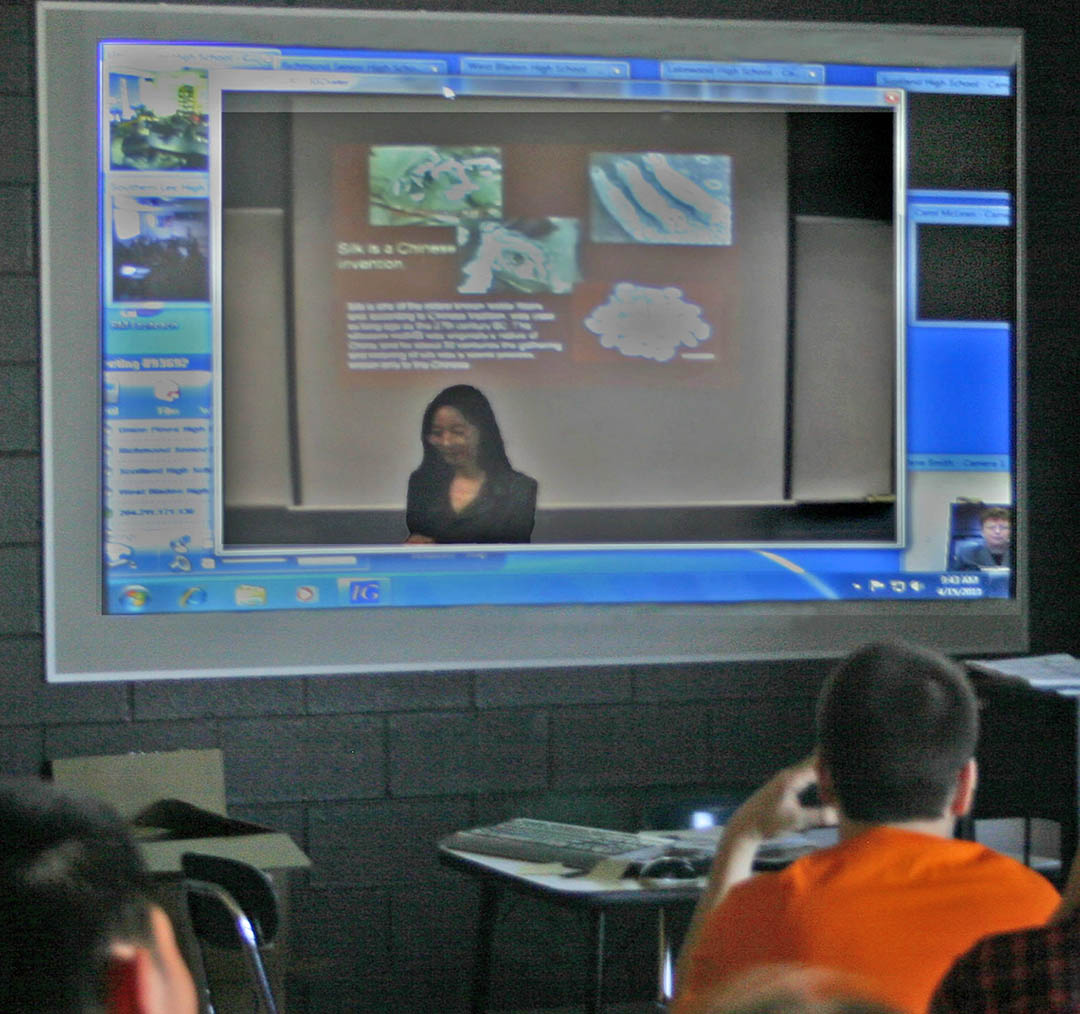SANFORD — Southern Lee High School sophomore Colton Moretz had a question for Central Carolina Community College Professor Shuya Che: Does China have a middle class? Che assured him that China does.
The question and answer would have been a common classroom exchange except that Moretz was seated in a classroom at Southern Lee, while Che, the college’s Confucius Classroom instructor, was several miles away at the college, interacting with the student via videoconferencing.
Moretz and the approximately 30 other Southern Lee students in the classroom weren’t the only students in central North Carolina videoconferencing with Che about Chinese culture and language. Students from five other high schools also questioned the professor about her homeland, The People’s Republic of China, on topics from pollution to religion.
All were connected to each other through the Distributed Learning Network established by the BRAC Regional Task Force. The hub of the network is located at the All American Center for Workforce Innovation at Fayetteville Technical Community College. The Center was set up using $800,000 from a state JobsNOW grant from the American Recovery and Reinvestment Act. The network is a tool to interconnect area educational institutions and economic development resources to produce a globally competitive workforce and attract industry.
Chinese is second only to English as the language of international commerce. As the world grows smaller, knowledge of China and the Mandarin Chinese language is an invaluable asset in education, politics, and business globally. That is why, in 2009, Central Carolina C.C. decided to partner with N.C. State University’s Confucius Institute, to establish the Confucius Classroom at the college’s Lee County Campus, in Sanford. N.C. State and CCCC are the first in the United States to develop a partnership for a Confucius Classroom at a community college. NCSU’s Institute is a partnership with
Nanjing Normal University and the Chinese Ministry of Education.
The growing importance of China in international commerce is also the reason that the BRAC RTF was interested in having Che address high school students in the 11-county region around Fort Bragg included in the RTF.
“The BRAC RTF is working to engage students in the region in ways that will better educate them to successfully compete in a global economy,” said Jane Smith, BRAC RTF’s program manager for education. “Utilizing a Distributed Learning Network throughout the region will connect students with resources that can equip them to do so. Dr. Che brings a knowledge of Chinese culture and language that today’s students and tomorrow’s decision makers need to understand.”
Six of the 12 high schools in the network took part in the April 15 videoconference: Southern Lee, Union Pines, Richmond, Lakewood, Scotland and West Bladen. In addition, BRAC RTF’s staff observed the interactive learning.
About 30 students from Honors Civics, Economics, and World History classes at Southern Lee gathered in Room 309, the school’s Enhanced Technology Classroom, which is equipped to link directly to the network hub for multi-location videoconferencing. The students could not only see and hear Che, but also see and hear students at the other schools as they asked questions ranging from how long the school year is in China to martial arts in Chinese schools.
“It was great,” Moretz said after the videoconference. “It was like she was here. Today, we learned a lot about a new culture.”
Che was pleasantly surprised when Southern Lee sophomore Daniel Chang began conversing with her in Mandarin Chinese. After chatting for a few minutes, Chang asked what the Chinese government and people are doing about pollution.
“A lot,” Che responded. “(For example), we are encouraged not to use plastic bags and the supermarkets or grocery stores are not allowed to provide plastic bags for free.”
Chang, the American-born son of Chinese immigrants, said afterward that he has been studying Chinese at a school in Raleigh since he was in kindergarten. He was excited to see that, through the BRAC RTF Distributed Learning Network, students at his school and other schools had the opportunity to learn from a Chinese professor at CCCC.
“I think her presentation was really good,” he said. “It’s good to know how to speak Chinese and learn about China. More Chinese are coming to America and more Americans are going to China. They can communicate and when Americans go to China, they will know how things work and know their way around.”
They will also be better prepared to succeed in the global economy.




